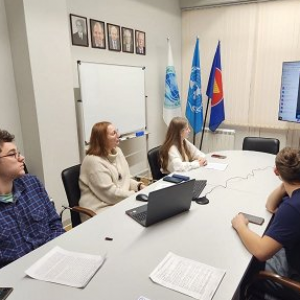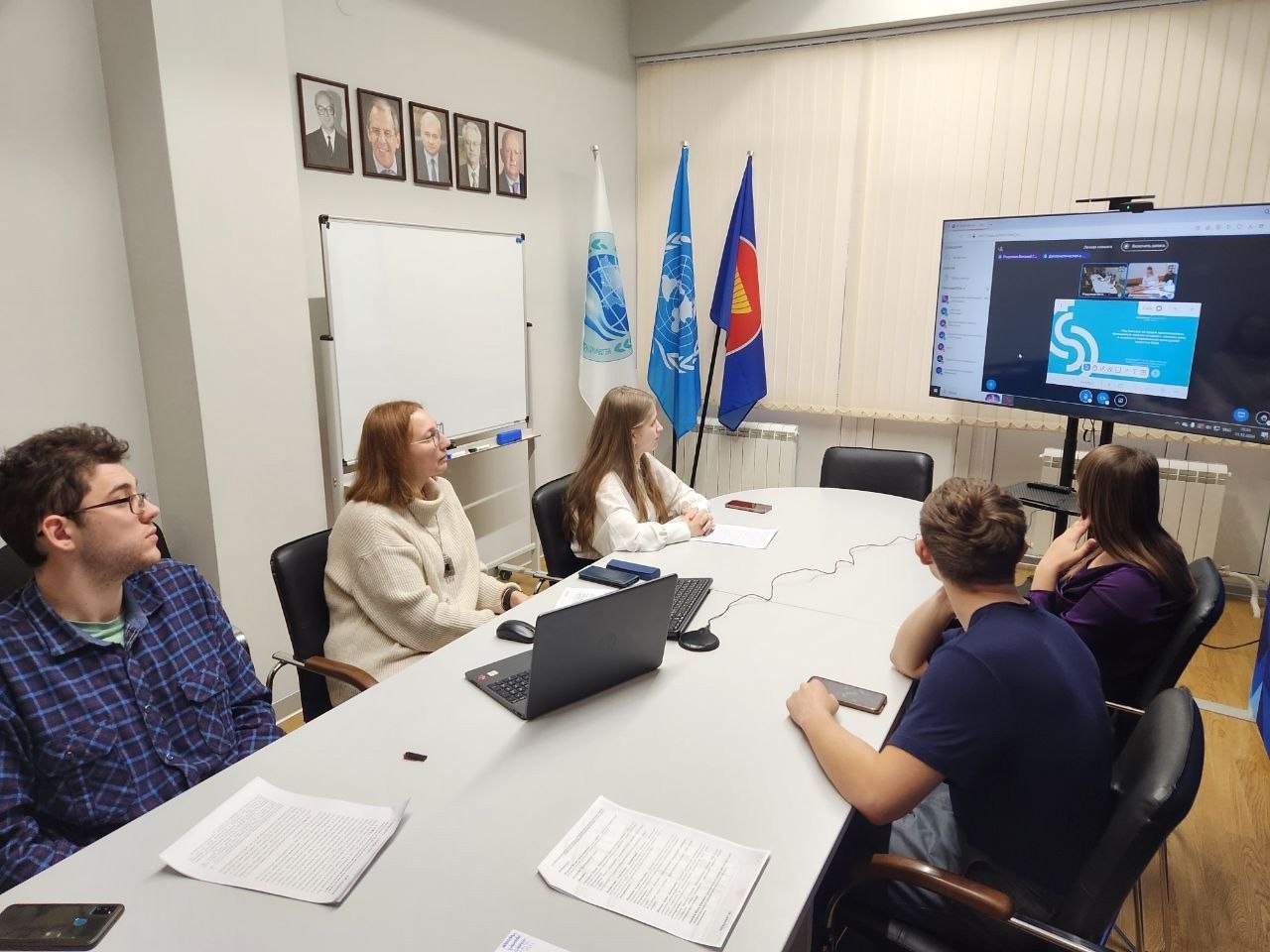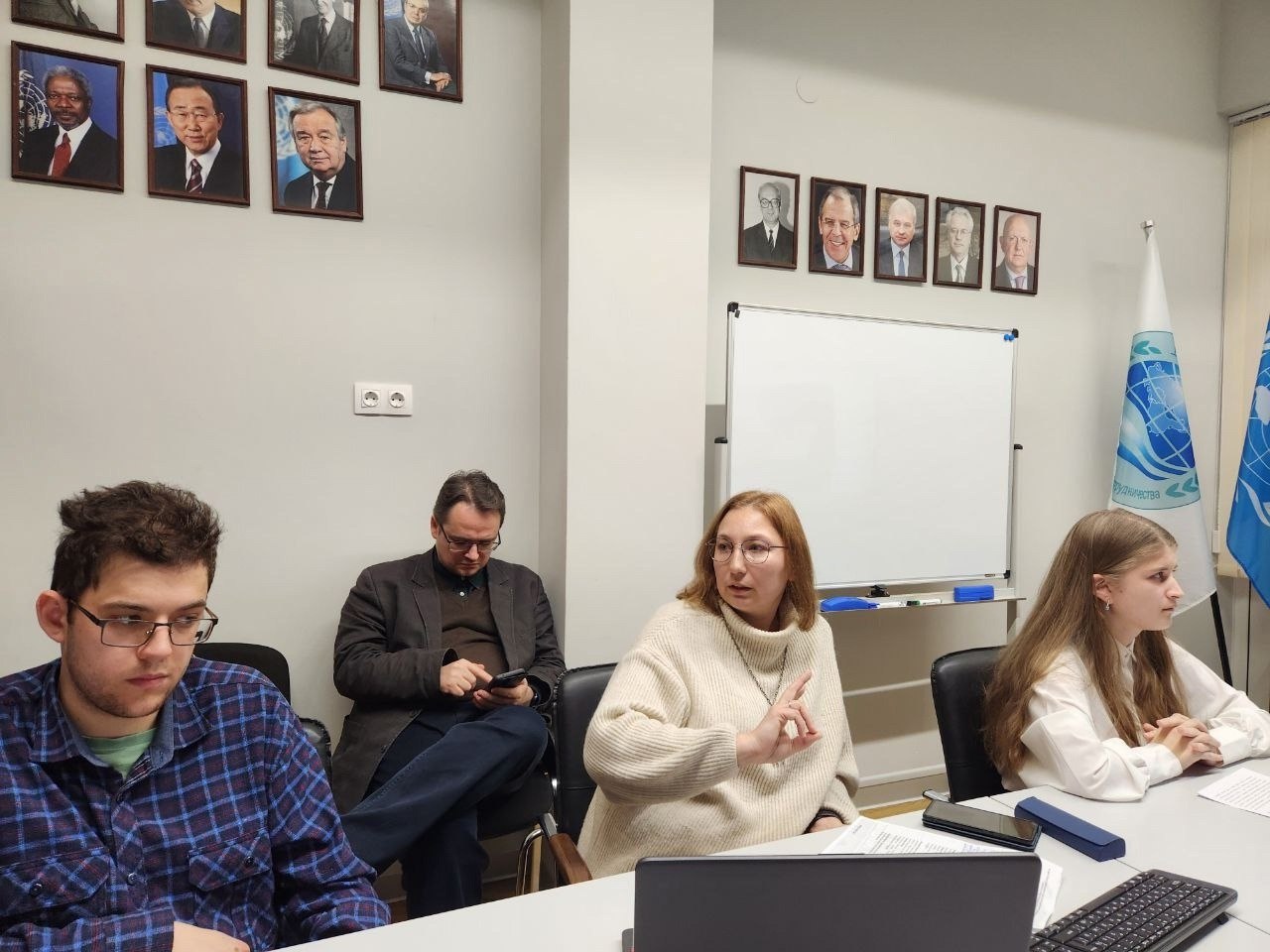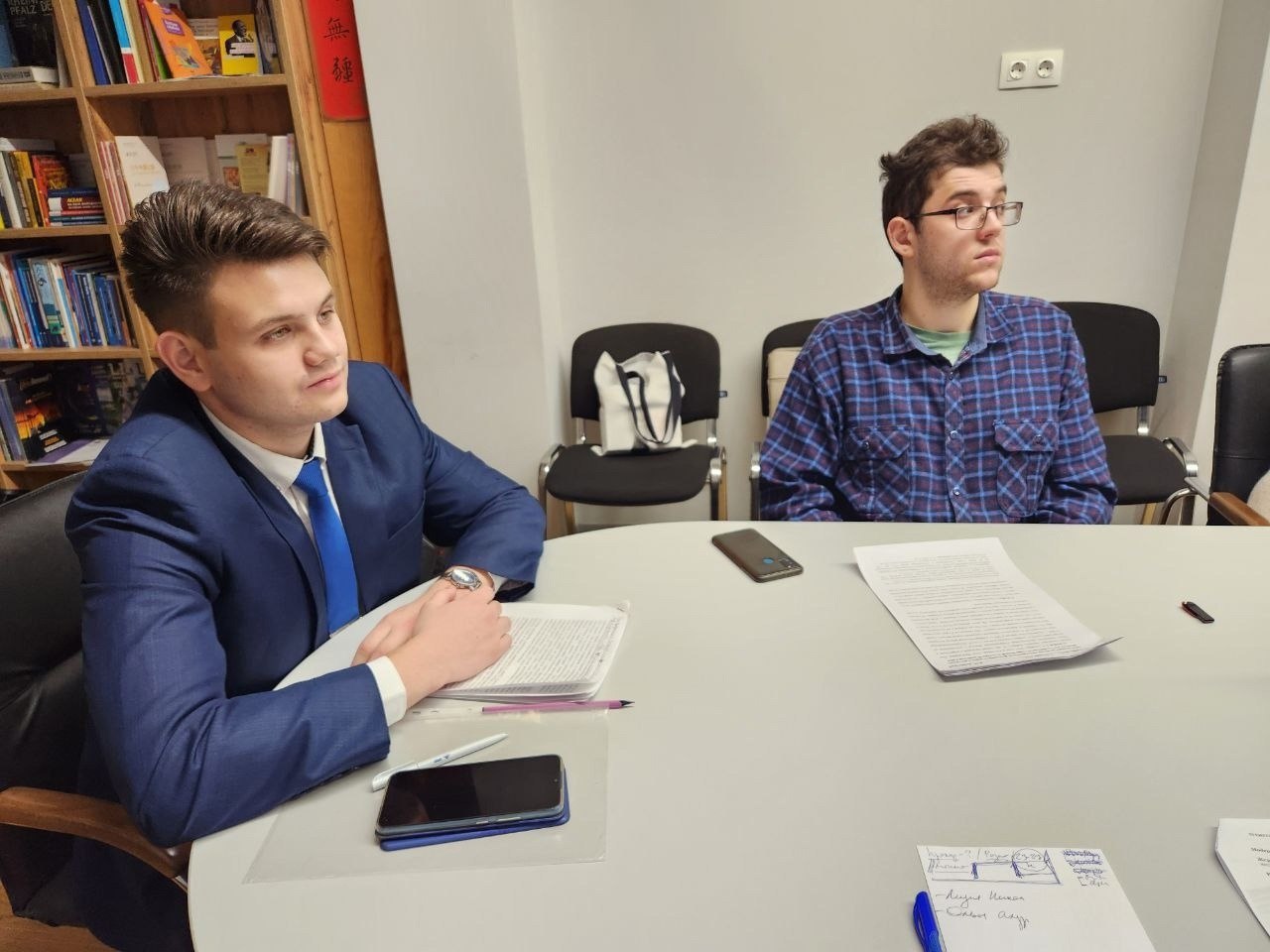On December 11, 2024, at the Primakov Centre, the Round Table “Memory of Civil Mars: Various Countries’ Experiences and Approaches” took place. The event was organized jointly with the Council of Young Scientists of the Diplomatic Academy of the Ministry of Foreign Affairs of Russia, as part of the 11th Annual International Scientific Conference of Young Scientists “Current Issues of World Politics”.
The participants in the Round Table were welcomed by Vitaly Roshchupkin, Director of the Primakov Regional Centre for Development of Public Diplomacy and International Relations, and Olga Timakova, Chairperson of the Council of Young Scientists at the Diplomatic Academy of the Ministry of Foreign Affairs Russia.
The event was moderated by Samara University’s Associate Professor, Candidate of Historical Sciences Yulia Zherdeva.
The Round Table participants were students of Samara University (Dunavetsky Konstantin Mikhailovich, Mironova Alina Pavlovna, Zhidkov Denis Anatolievich), the Diplomatic Academy of the Ministry of Foreign Affairs of Russia (Pismennaya Maria Aleksandrovna, Vilchinsky Anton Sergeevich, Sukhoverova Anastasia Igorevna, Danilov Fedor Pavlovich), Siberian Federal University (Kashkarev Oleg Ruslanovich) and Far Eastern Federal University (Mikhalev Vladimir Markovich).
Politics of memory is not just studies of the past, but active formation and use in the present. We choose which events to remember, how to interpret them, and who to pay homage to. This is a struggle for narratives, for our comprehension of ourselves and our place in the world.
Examples of politics of memory are seen everywhere: from disputes about dismantling monuments to discussions about teaching history at school. Each country, each nation forms its own collective memory, choosing what to be emphasized and what to be concealed. This affects national identity, political stability, and even international relations.
Text: Gulya Shakurova, Monitor of Group 5201-460401D



